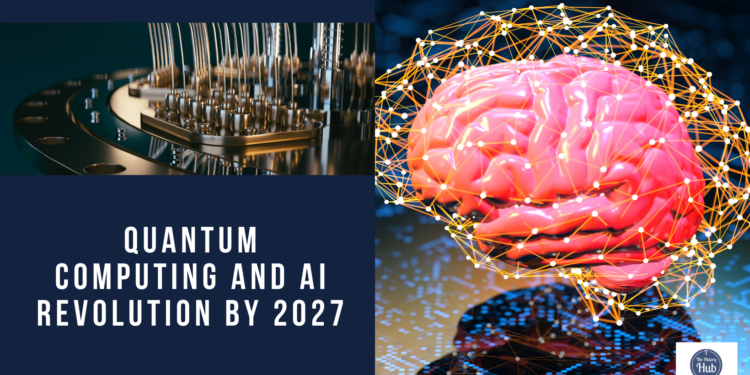Artificial intelligence (AI) has captured our imagination for decades, promising to revolutionize healthcare, materials science, and countless other fields. But current AI, despite its impressive capabilities, faces limitations. That’s where quantum computing steps in, poised to be the game-changer for AI in the coming years.
What is quantum computing?
Unlike traditional computers that use bits (0 or 1), quantum computers utilize qubits, which can exist simultaneously in both states. This “superposition” allows them to perform calculations exponentially faster than any classical computer. Imagine tackling problems that would take traditional computers centuries in mere seconds!
The AI revolution:
Experts predict that by 2027, quantum computing will significantly impact AI in several ways:
- Enhanced machine learning: Quantum algorithms could revolutionize machine learning, enabling AI to analyze vast amounts of data with unprecedented accuracy, leading to breakthroughs in drug discovery, personalized medicine, and materials science.
- Tackling complex problems: Quantum-powered AI could solve problems beyond the reach of classical AI, such as simulating complex molecules, optimizing traffic flow in real time, and even breaking current encryption methods.
- Improved natural language processing: Quantum AI could understand and generate human language with near-perfect fluency, paving the way for more natural and intuitive human-computer interactions.
The road ahead:
While the future is promising, challenges remain. Building and maintaining stable, scalable quantum computers is complex and expensive, and developing quantum algorithms specifically tailored for AI applications is an ongoing process.
Impact and implications:
Despite the challenges, the potential impact of quantum-powered AI is undeniable. It could usher in a new era of innovation, impacting diverse fields like healthcare, finance, and transportation. However, ethical considerations and potential job displacement due to automation must be carefully addressed.
Conclusion:
While 2027 might be an ambitious target, integrating quantum computing and AI holds immense potential. As research progresses and technology matures, we are on the cusp of witnessing a transformative leap in artificial intelligence. The future, shaped by this powerful duo, promises to be extraordinary.
For further exploration:
- Include a sidebar highlighting key players in the field, such as Google, IBM, and Microsoft.
- Briefly discuss potential ethical concerns and societal implications of this emerging technology.
- Encourage readers to learn more about quantum computing and its potential impact on various industries.
By presenting a balanced and informative perspective, this article can spark public interest in this exciting intersection of technology and its potential to shape our future. Remember, this is just a starting point, feel free to customize it further with your insights and information!


